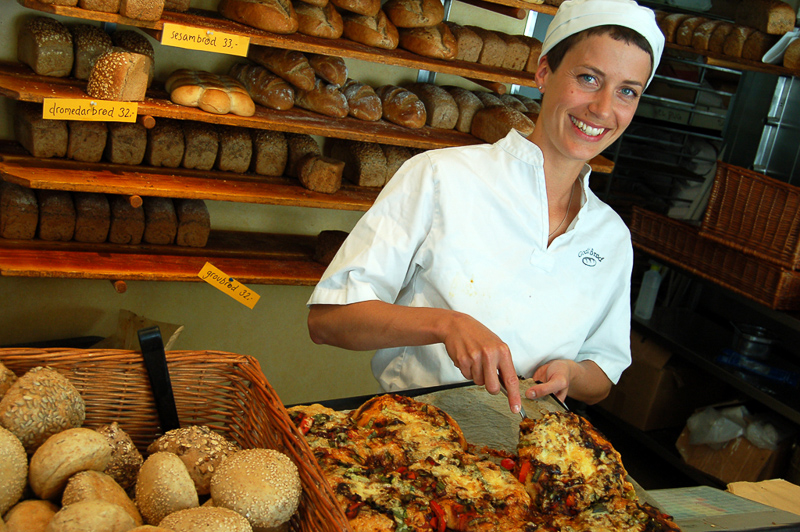CONJUGATION OF THE FRENCH VERB BOULANGER
INDICATIF
TEMPS SIMPLES
Présent
je boulange
tu boulanges
il/elle boulange
nous boulangeons
vous boulangez
ils/elles boulangent
Imparfait
je boulangeais
tu boulangeais
il/elle boulangeait
nous boulangions
vous boulangiez
ils/elles boulangeaient
Passé simple
je boulangeai
tu boulangeas
il/elle boulangea
nous boulangeâmes
vous boulangeâtes
ils/elles boulangèrent
Futur simple
je boulangerai
tu boulangeras
il/elle boulangera
nous boulangerons
vous boulangerez
ils/elles boulangeront
TEMPS COMPOSÉS
Passé composé
j'ai boulangé
tu as boulangé
il/elle a boulangé
nous avons boulangé
vous avez boulangé
ils/elles ont boulangé
Plus-que-parfait
j'avais boulangé
tu avais boulangé
il/elle avait boulangé
nous avions boulangé
vous aviez boulangé
ils/elles avaient boulangé
Passé antérieur
j'eus boulangé
tu eus boulangé
il/elle eut boulangé
nous eûmes boulangé
vous eûtes boulangé
ils/elles eurent boulangé
Futur antérieur
j'aurai boulangé
tu auras boulangé
il/elle aura boulangé
nous aurons boulangé
vous aurez boulangé
ils/elles auront boulangé
SUBJONCTIF
TEMPS SIMPLES
Présent
que je boulange
que tu boulanges
qu'il/elle boulange
que nous boulangions
que vous boulangiez
qu'ils/elles boulangent
Imparfait
que je boulangeasse
que tu boulangeasses
qu'il/elle boulangeât
que nous boulangeassions
que vous boulangeassiez
qu'ils/elles boulangeassent
TEMPS COMPOSÉS
Passé
que j'aie boulangé
que tu aies boulangé
qu'il/elle ait boulangé
que nous ayons boulangé
que vous ayez boulangé
qu'ils/elles aient boulangé
Plus-que-parfait
que j'eusse boulangé
que tu eusses boulangé
qu'il/elle eût boulangé
que nous eussions boulangé
que vous eussiez boulangé
qu'ils/elles eussent boulangé
CONDITIONNEL
TEMPS SIMPLES
Présent
je boulangerais
tu boulangerais
il/elle boulangerait
nous boulangerions
vous boulangeriez
ils/elles boulangeraient
TEMPS COMPOSÉS
Passé (1ère forme)
j'aurais boulangé
tu aurais boulangé
il/elle aurait boulangé
nous aurions boulangé
vous auriez boulangé
ils/elles auraient boulangé
Passé (2ème forme)
j'eusse boulangé
tu eusses boulangé
il/elle eût boulangé
nous eussions boulangé
vous eussiez boulangé
ils/elles eussent boulangé
IMPÉRATIF
TEMPS SIMPLES
